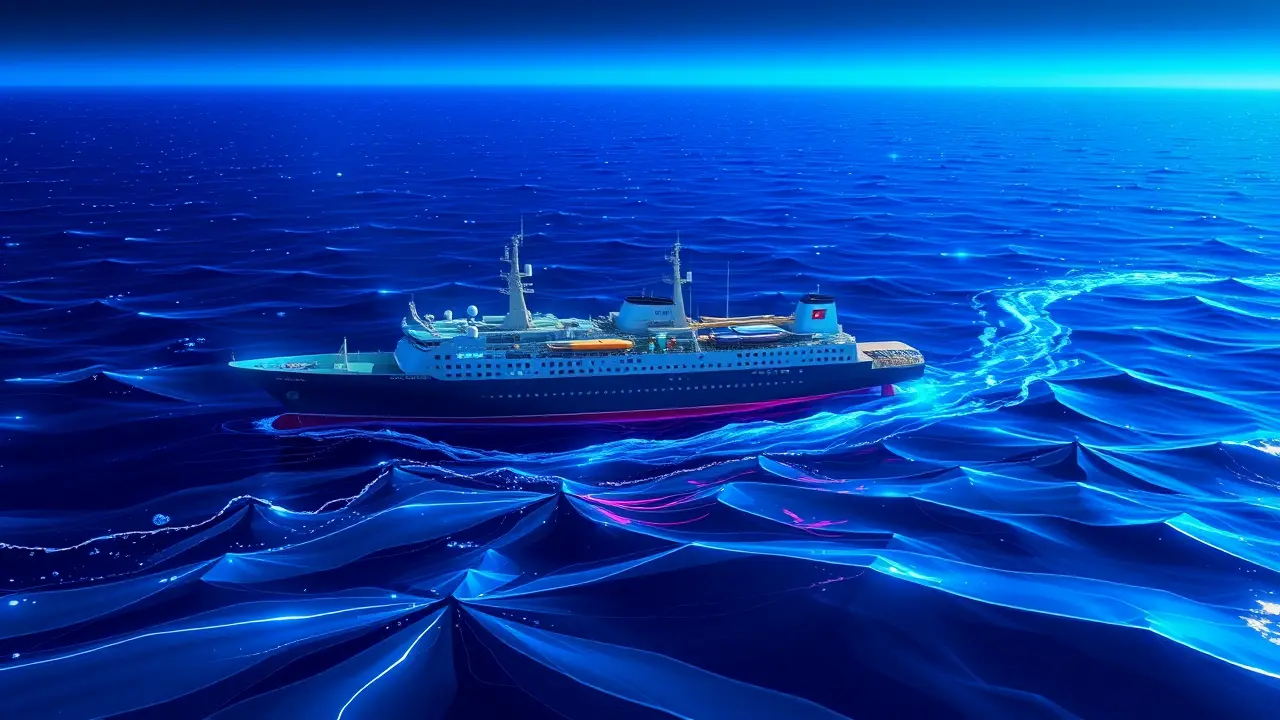
Scienceearth scienceOceanography
China and Cook Islands Conduct Joint Marine Survey for Rare Earths.
TH
Thomas Green
6 hours ago7 min read2 comments
In a move that resonates with the grandiosity of a new space race, the geopolitical currents of the South Pacific have been stirred by the conclusion of a landmark joint scientific expedition between China and the Cook Islands, a mission squarely focused on the underwater hunt for rare earth elements. The arrival of the 4,000-tonne Chinese marine research vessel Da Yang Hao—a titan of oceanic exploration bristling with advanced sonar and sampling technology—at Avatiu port near Avarua marks a significant escalation in the global contest for these critical minerals, the very lifeblood of our modern technological ecosystem.This venture, coming hot on the heels of a three-week survey by a US research ship in the same region, transforms the serene blue waters into a chessboard where superpower ambitions are playing out. Welcoming the vessel, Chinese Vice-Minister Sun Shuxian’s presence underscored the strategic, state-level importance Beijing places on securing these resources, essential for everything from the smartphones in our pockets to the guidance systems in advanced weaponry and the powerful magnets in electric vehicle motors.The Cook Islands, a self-governing nation in free association with New Zealand, sits atop a potential treasure trove; its vast exclusive economic zone is believed to contain polymetallic nodules rich in cobalt, manganese, nickel, and the prized rare earths like neodymium and dysprosium. This partnership is a masterclass in soft power diplomacy, where scientific collaboration serves as the vanguard for deeper economic and political ties, echoing the historical patterns of terrestrial resource grabs but transposed onto a far more complex and fragile marine environment.The geopolitical implications are profound, challenging the traditional regional influence of powers like Australia, New Zealand, and the United States, who view China’s expanding Pacific footprint with increasing alarm. The Da Yang Hao’s capabilities are not merely for academic curiosity; its data will be instrumental in mapping the seabed with a precision that could pave the way for future deep-sea mining operations, a prospect that ignites fierce debate between the urgent need for a green transition and the potentially catastrophic ecological consequences of disturbing the deep ocean floor.Experts are already drawing parallels to the scramble for Africa's minerals in the 19th century, warning of a neo-colonial dynamic where a large, resource-hungry nation leverages its technical and financial might to secure long-term supply chains from smaller, developing island states. The environmental calculus is staggering—deep-sea mining could cause irreversible damage to unique ecosystems we have only begun to understand, from destroying slow-growing polymetallic nodule fields that take millions of years to form to creating sediment plumes that could smother marine life across vast distances.Conversely, the argument for terrestrial rare earth mining is equally fraught, often involving massive land degradation, radioactive waste, and significant carbon emissions, making the deep-sea alternative, for all its risks, a potentially less destructive option in a world desperately seeking to decarbonize. This joint survey is therefore more than a scientific data-gathering mission; it is a critical test case for the future of global resource governance, probing the limits of the International Seabed Authority's regulatory framework and setting a precedent for how such ventures might proceed in the vast, law-adjacent spaces of the high seas. The outcome of this quiet, technical collaboration in the South Pacific will ripple outward, influencing everything from the price and availability of next-generation technologies to the balance of power in one of the world’s most strategically vital regions, ultimately forcing a global conversation about the true cost of our digital and green futures.
#China
#Cook Islands
#marine survey
#rare earths
#South Pacific
#geopolitics
#featured
Stay Informed. Act Smarter.
Get weekly highlights, major headlines, and expert insights — then put your knowledge to work in our live prediction markets.
© 2025 Outpoll Service LTD. All rights reserved.